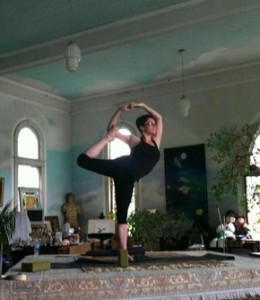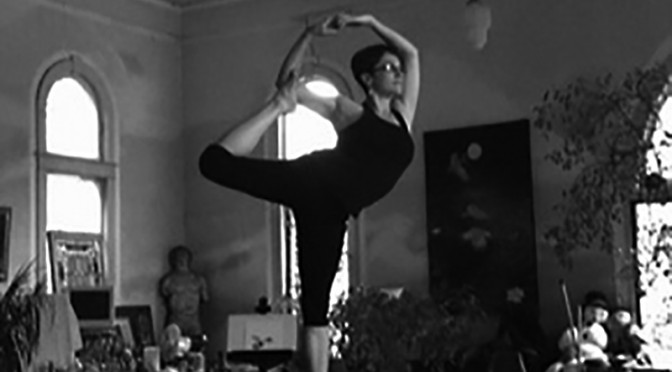Are you inclined to criticize yourself for the smallest things? Are you overly concerned about what others think of you and your playing? Are you fearful of getting it wrong? Are you stuck in a rut? It is very likely that we all have some emotionally charged reactions to these questions in some form or another. Their effect on our musical lives can shape our playing and alter the pure enjoyment we can attain from one simple note.
Christopher Lee: On Accuracy and Freedom
 When I first started playing in orchestras I remember it being one of the most stressful things in my life at that moment. You see, at the beginning, I (and I imagine lots of young musicians) felt I had something to prove. That I was worthy of sitting in that chair. So, I focussed on being an accurate player, and what that meant to me at the time was putting all the right notes in the right spot at the right dynamic and in tune. With that mindset, I never achieved this goal. There was something inside of me that made me want to play a phrase a certain way which in turn made it more difficult technically. Therefore, as every concert came up I’d be determined to have an accurate night. At the end of the concert I’d decide that the next night it was going to happen and so on.
When I first started playing in orchestras I remember it being one of the most stressful things in my life at that moment. You see, at the beginning, I (and I imagine lots of young musicians) felt I had something to prove. That I was worthy of sitting in that chair. So, I focussed on being an accurate player, and what that meant to me at the time was putting all the right notes in the right spot at the right dynamic and in tune. With that mindset, I never achieved this goal. There was something inside of me that made me want to play a phrase a certain way which in turn made it more difficult technically. Therefore, as every concert came up I’d be determined to have an accurate night. At the end of the concert I’d decide that the next night it was going to happen and so on.
Then, something changed somewhere. I forgot about my long-standing challenge and all it took was one concert where that focus wasn’t in my mind. It worked. It was an accurate concert, and also, musical! I realised then that my one-sided focus to be accurate was not going to work for me because my musical side was one to take risks and react to what others were doing in concert. Once my mind had switched to simply enjoying the music-making I found that the accuracy also became consistent.
This led to a freedom of feeling and thinking which runs through all the repertoire that I play. It takes me a long time to come to an interpretation of a piece simply because it’s always changing as I discover more and more sounds, colours and moods. At times I incorporate so-called “extended techniques” in old repertoire because it gives light to a more musical sound. These are not things I learned from school, or from reading a textbook. These are things that came from imagination, and, happy accidents in the practice room. So from there, every “mistake” I make in practicing is merely an opportunity to see if I hear something else in a phrase.
This constant search for colours in sound can be somewhat addictive! Yet, for me, it is the way to tell my story when I play for others. A natural extension of this is my belief that everyone has something to say. For some of us it could be bottled up inside and we may not even know what it is yet! I use some acting techniques in workshops to help free this creativity in others. For we are all actors the minute we step on stage to deliver our story.
Meg Griffith: On Perfection and Perception
 At a crossroads in my musical life, I sat trying to decide which direction to take my career. With so many inspiring opportunities surrounding us all, one would think this would be an exciting pastime. Unfortunately, I was filled with negative energy – there was a lack of passion towards music and disappointment and sometimes disgust directed toward myself and my playing. I thought I had no idea how to get to my goals efficiently and positively so I just stared at the seemingly unattainable, building my own walls around me and giving myself permission to expend less energy towards my goals. I thought of quitting.
At a crossroads in my musical life, I sat trying to decide which direction to take my career. With so many inspiring opportunities surrounding us all, one would think this would be an exciting pastime. Unfortunately, I was filled with negative energy – there was a lack of passion towards music and disappointment and sometimes disgust directed toward myself and my playing. I thought I had no idea how to get to my goals efficiently and positively so I just stared at the seemingly unattainable, building my own walls around me and giving myself permission to expend less energy towards my goals. I thought of quitting.
Then I began to consider why I chose the flute in the first place – simple enjoyment of the instrument and the music itself. This idea had become clouded during the busy years of musical schooling in which I focused on what I ought to sound like and what others thought of me. I dusted the idea off, made it the basis of every aspect of my teaching and playing, and let it guide me as I determined how to approach problem solving on the road to my goals. The difference in both my attitude and the attitudes of my students was incredible – we still worked hard, still competed, still performed, still obsessed over small mistakes, but the approach, both intellectually and emotionally, was hugely different and far more positive. We spend so much time trying to attain perfection (whatever that really is in the long run) that we forget to look at the beauty we offer in each moment.
That is all well and good you say, but easier said than done. For me, things began to come together when I stood back to watch my reactions during my practice sessions and then ask questions to better understand those reactions:
- After intense criticism over the smallest things, how do I feel? Is this helping me get to my goal? Why am I being so critical?
- Are my reactions helpful and detailed in ways that lead to decisions that can help me get to my goal? Or are they overly general? (That sounded bad. VS I liked the musical approach, but I lost control of the register and it became airy. What tools do I use to solve the sound aspect while keeping the musical idea?)
- Why do my reactions tend to be negative or critical? Am I afraid of getting something wrong? What happens if I do? (Nothing – except that I find a new understanding of my mental or physical approach to playing which helps me avoid the same mistake in the future.)
- Is my fear of getting something wrong based in shame or embarrassment within the view of others? Where does this comparison come from? Do I feel my offerings are not worth as much as others? Why should another’s offerings define my own?
Asking these types of questions, even if you find out you don’t know every answer, is the first step to understanding yourself and therefore having compassion for your challenges rather than frustration and shame. One of my favorite teaching moments after walking through questions like these is seeing the emotions on a student’s face when he or she fully realizes that not only is there nothing to be ashamed about (relief) but that they do know the answers and have every tool to lead them to success (pride).
On Where to Turn
 Opportunities for one-on-one coaching in topics dedicated to these challenges as well as discussions with people just like us who can provide anecdotes like the ones above make up one of our favorite aspects of being musicians: the support within our community. Expand your network and open your mind to new approaches by surrounding yourself with positive energy and supporting yourself in mind and body. Whole Musician retreats bring all these aspects of musicianship and more into our awareness with the aim of making us all happy and healthy musicians. We will be presenting workshops on these ideas and more in London from August 26-28. If anyone is curious about what goes on at Whole Musician retreats, by all means look for our registration information online at WholeMusician.net.
Opportunities for one-on-one coaching in topics dedicated to these challenges as well as discussions with people just like us who can provide anecdotes like the ones above make up one of our favorite aspects of being musicians: the support within our community. Expand your network and open your mind to new approaches by surrounding yourself with positive energy and supporting yourself in mind and body. Whole Musician retreats bring all these aspects of musicianship and more into our awareness with the aim of making us all happy and healthy musicians. We will be presenting workshops on these ideas and more in London from August 26-28. If anyone is curious about what goes on at Whole Musician retreats, by all means look for our registration information online at WholeMusician.net.

